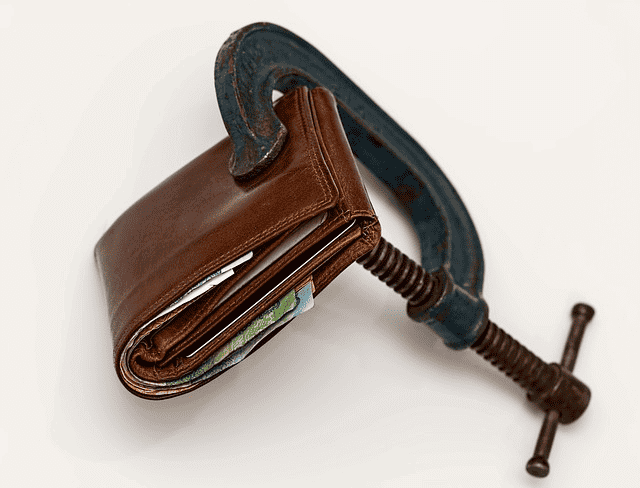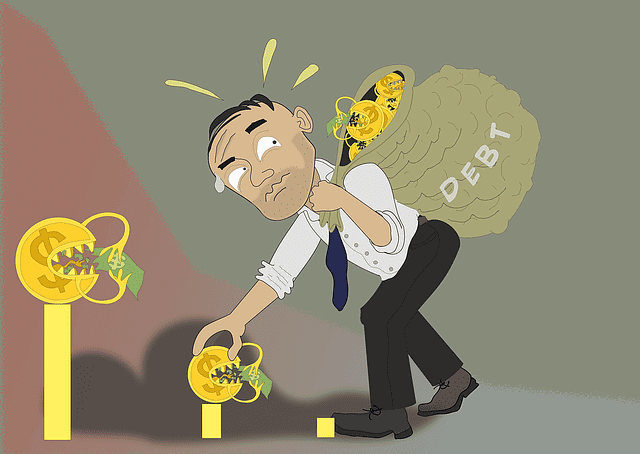
When faced with the challenging task of managing a deceased person’s estate, executors carry a significant weight on their shoulders. They must navigate through complex financial and legal matters, handle creditors, and ensure that beneficiaries receive their rightful inheritance. But what happens when the estate’s debts outweigh its assets, and how can executors protect themselves from personal liability? One common question that arises is, “Do I have to personally pay debts of an estate if I am the executor?” In this blog post, we’ll explore these crucial questions and provide practical advice for executors to effectively manage estate debts.
Key Takeaways
- As an executor, your main job is to manage estate debt and protect yourself from personal liability.
- When dealing with insolvent estates, prioritize debts according to state laws and explain the impact on beneficiaries.
- Seek legal advice when needed & work with financial professionals for help managing the estate’s fiduciary duties.
Executor’s Role in Estate Debt Management
An executor’s primary responsibility is to manage the deceased person’s estate, which includes handling their debts. Executors must go through a series of steps, from identifying outstanding debts to notifying creditors and finally paying off those debts using the estate’s assets.
But what do these steps involve precisely? We will delve deeper into an executor’s duties in managing estate debts.

Identifying Debts
The first step in handling an estate’s debts is identifying them. This involves reviewing the deceased’s financial records and locating any outstanding obligations, such as mortgages, loans, or credit card debts. Executors should carefully examine bank statements, tax returns, and other financial documents to ensure all debts are accounted for.
Remember, some assets like houses or cars may have loans attached, thus warranting thoroughness in this process, including checking your bank account.
Notifying Creditors
After identifying the debts, executors must inform creditors about the deceased’s passing. This process may involve posting a notice in a local newspaper or directly contacting known creditors, such as banks or credit card companies.
Providing creditors with sufficient information about the estate to file a claim is crucial, ensuring they have a fair opportunity to collect on the outstanding debt. Remember, creditors usually have a limited time to make a claim (typically 3-6 months).
Paying Debts from Estate Assets
Having notified creditors, executors should then utilize the estate’s assets to settle outstanding debts. Prioritizing debts according to state law is essential, with secured debts, funeral expenses, and taxes taking precedence.
Executors should not use their own money to cover estate debts; instead, they must focus on using the deceased person’s assets to fulfill these financial obligations. Once all debts are settled, the remaining assets can be distributed to the beneficiaries as outlined in the will or trust.
Personal Liability of Executors
While managing an estate can be a daunting task, especially for a surviving spouse, executors generally do not need to worry about being personally liable for the deceased person’s debts.
Nevertheless, this rule has some exceptions, which will be examined in the subsequent subsections.
When Executors are Personally Liable
Executors may be personally liable for estate debts in specific situations, such as distributing assets to beneficiaries before settling debts or failing to manage estate assets properly.
Executors should be diligent in paying off outstanding debts in the correct order and avoid distributing assets until all debts have been settled. They should also ensure that any joint debts are handled appropriately to avoid personal liability.
Avoiding Personal Liability
Executors can avoid personal liability by adhering to the correct procedures, settling debts in an appropriate order, and consulting professionals when necessary. This includes ensuring all debts are taken care of before distributing assets to beneficiaries, managing and safeguarding estate assets from creditors, and keeping accurate records of all transactions.
Maintaining organization and vigilance enables executors to meet their responsibilities successfully and shield themselves from personal liability.

Example:
Helena passed away, leaving behind her estate and several impatient heirs. Eager for their inheritance, they constantly pressured Patrick, the appointed executor to distribute the assets immediately.
However, there were outstanding debts, potential claims, and taxes yet to be settled. Distributing assets prematurely could make Patrick personally liable for any discrepancies or unpaid obligations.
The heirs, blinded by their impatience, labeled Patrick as inefficient and uncooperative. They spread rumors about him withholding assets for personal gain.
To protect himself, Patrick sought advice from wh Law, aware of the pitfalls of hastiness in estate distributions, and we advised Patrick to follow the process meticulously, documenting every step.
Wh Law also recommended a meeting with the heirs. At the gathering, the attorneys detailed the risks and liabilities of early distribution, emphasizing that any rush could jeopardize the entire inheritance and put Patrick at personal risk.
Some heirs, realizing the complexities, began to understand. However, a few remained discontented, preferring instant gratification over a thorough process.
In the end, Patrick adhered to the proper procedures, ensuring all obligations were met before distributing the assets. While it took time, the majority of the heirs came to appreciate the diligence, understanding that patience was essential to safeguarding Helena’s legacy.
Insolvent Estates: What Happens When Debts Exceed Assets
In some cases, a deceased person’s debt may exceed the value of their deceased person’s estate, resulting in an insolvent estate. This situation can be particularly challenging for executors, as it requires prioritizing deceased person’s debts and may impact beneficiaries of the deceased person.
We will examine the implications of an insolvent estate and the strategies executors can employ to navigate this complex situation.
Prioritizing Debts
When handling an insolvent estate, executors must prioritize debts according to state laws. This typically means paying debts in the following order:
- Secured debts
- Funeral expenses
- Taxes
- Other debts such as credit card balances or personal loans
Adhering to the appropriate debt repayment sequence allows executors to utilize the estate’s limited assets efficiently to meet the deceased person’s financial obligations.
Impact on Beneficiaries
The unfortunate reality of an insolvent estate is that beneficiaries may not receive an inheritance, as debts take precedence over distributions. While family members of the deceased won’t have to pay off any debts, they may not receive any inheritance if the estate’s assets are insufficient to cover outstanding obligations.
It is incumbent upon executors to relay this situation to beneficiaries and clarify the impacts of an insolvent estate.

Dealing with Debt Collectors as an Executor
Another challenge executors may face is dealing with debt collectors. While it’s essential to respect the rights of creditors, executors must also ensure fair debt collection practices and protect the estate from scams.
We will discuss strategies executors can employ to handle debt collectors effectively while protecting the estate.
Fair Debt Collection Practices
Executors should familiarize themselves with the Fair Debt Collection Practices Act (FDCPA), which sets forth rules and regulations for debt collectors. The FDCPA prohibits debt collectors from using unfair, abusive, or deceptive methods to collect debts from consumers, including harassing or making false statements.
It’s the executor’s responsibility to ensure that debt collectors follow these practices when attempting to collect from the estate.
Protecting the Estate from Scams
In addition to ensuring fair debt collection practices, executors must be vigilant against scams and verify the legitimacy of debts before paying them from the estate. This may involve requesting validation notices from debt collectors or filing complaints with the Consumer Financial Protection Bureau (CFPB) if necessary.
These measures enable executors to shield the estate from potential scams and confirm payment of only legitimate debts.

Assets Protected from Creditors
Not all estate assets are subject to debt repayment. Certain assets, known as exempt assets, are protected from creditors and can be distributed to beneficiaries without being used to pay debts.
Exempt vs. Non-Exempt Assets
Exempt assets are those that are safeguarded from liquidation and cannot be sold to pay off debts, such as certain personal property, retirement accounts, and life insurance proceeds.
Non-exempt assets, on the other hand, are not protected and can be sold by the trustee to settle debts. Executors must be aware of the distinction between these two types of assets and ensure that exempt assets are not used to pay debts.
Role of Executor in Safeguarding Exempt Assets
As part of their responsibilities, executors must:
- Identify and protect exempt assets, ensuring they are not used to pay debts and are distributed to beneficiaries as intended
- Keep exempt assets separate from non-exempt assets
- Maintain accurate records of all transactions involving exempt assets
Effective management of exempt assets enables executors to meet their fiduciary duty and safeguard the interests of beneficiaries.
Executors and Joint Debts
Joint debts, including those involving co-signers or joint account holders, can also pose challenges for executors. These debts may involve another party who is also responsible for repayment, and executors must navigate the complexities of these situations to ensure the proper handling of joint debts.
It is important for executors to understand the legal implications of joint debts.
Types of Joint Debts
Joint debts may include mortgages, credit card debt, and loans, where another party is also responsible for repayment. These debts owed can arise in various situations, such as when couples or business partners take out emergency payday loans together or co-sign on a credit agreement.
Executors should be aware of the different types of joint debts and their implications for estate debt management.
Handling Joint Debts as an Executor
To effectively manage joint debts, executors must:
- Communicate with co-debtors
- Ensure the proper handling of these obligations
- Negotiate with creditors to settle the debt
- Coordinate with co-debtors on repayment plans
Cooperating with co-debtors and creditors, executors can facilitate the successful resolution of joint debts and safeguard the estate from potential liability.
Seeking Professional Help as an Executor
In many cases, executors may benefit from seeking professional help, such as legal advice or financial assistance, to properly manage estate debts. This can be particularly helpful when dealing with complex estates, insolvent estates, or disputes with creditors or beneficiaries.
When to Seek Legal Advice
Executors should seek legal advice when dealing with complex estates, insolvent estates, or disputes with creditors or beneficiaries. Legal counsel can provide guidance on the proper procedures, state laws, and potential challenges that executors may face during the probate process in probate court.
Seeking legal advice when necessary equips executors to fulfill their responsibilities and protect both the estate and themselves from potential liability.
Working with Financial Professionals
In addition to legal advice, executors may also benefit from working with financial professionals, such as accountants or financial advisors, to ensure accurate accounting and proper management of estate assets. Financial professionals can help executors navigate complex financial matters, such as valuing assets, managing investments, and handling tax considerations.
Through collaboration with financial experts, executors can manage the estate more effectively and meet their fiduciary duties.
Summary
In conclusion, managing estate debts is a crucial responsibility for executors, requiring careful attention to detail, knowledge of legal and financial matters, and a commitment to fulfilling the deceased person’s wishes. By understanding their role in handling estate debts, safeguarding exempt assets, and working with professionals when needed, executors can navigate even the most complex estates and protect both themselves and the intended beneficiaries. As you embark on this challenging yet rewarding journey, remember that you are not alone—seek the help of an expert estate lawyer to fulfill this important role.
Frequently Asked Questions
Is the executor personally liable for debts?
As an executor, you are not responsible for settling the debts of the deceased.
However, in certain cases, such as if you cosigned on a loan or are a joint account holder, you can be held personally liable for paying off these debts up to the value of the estate.
Are beneficiaries liable for debts?
No, beneficiaries are not liable for debts as long as they don’t share legal responsibility for them.
Unless there’s money in the estate, the debts usually remain unpaid.
What debts are not forgiven at death?
Tax debt isn’t forgiven upon death, so the executor of the deceased’s estate is responsible for settling any IRS debt.
Any income earned in the year of their death must also be reported and paid accordingly.
How does estate pay off debt?
When a person dies, the money and property in their estate is generally used to pay off any outstanding debts.
If the estate can’t cover the debt, it may go unpaid if there’s no one else who shares responsibility for it.
What is the role of an executor in managing estate debts?
As executor, it is your duty to manage estate debts: identify outstanding debts, notify creditors, and pay off the debts using the estate’s assets.






